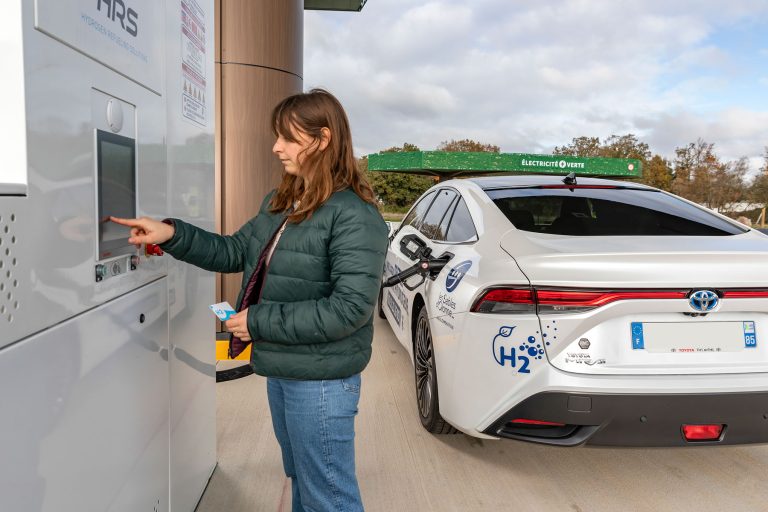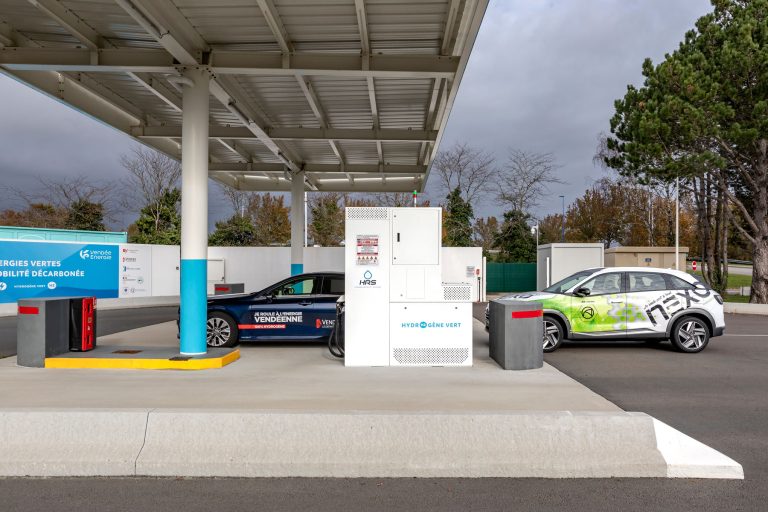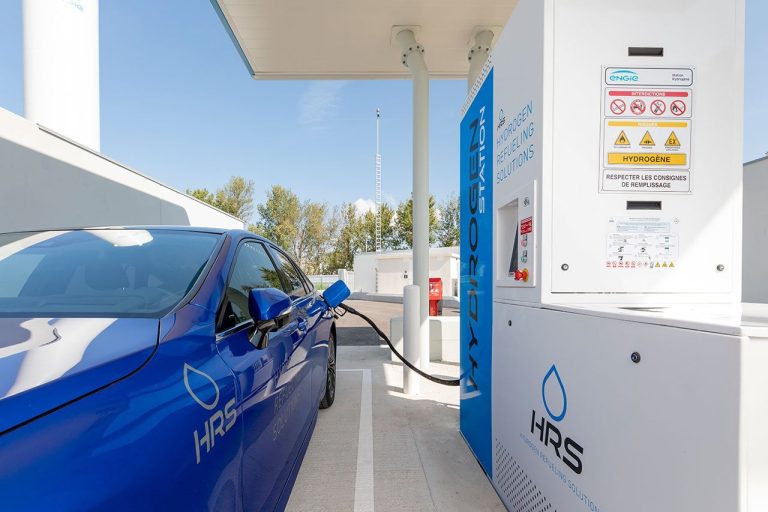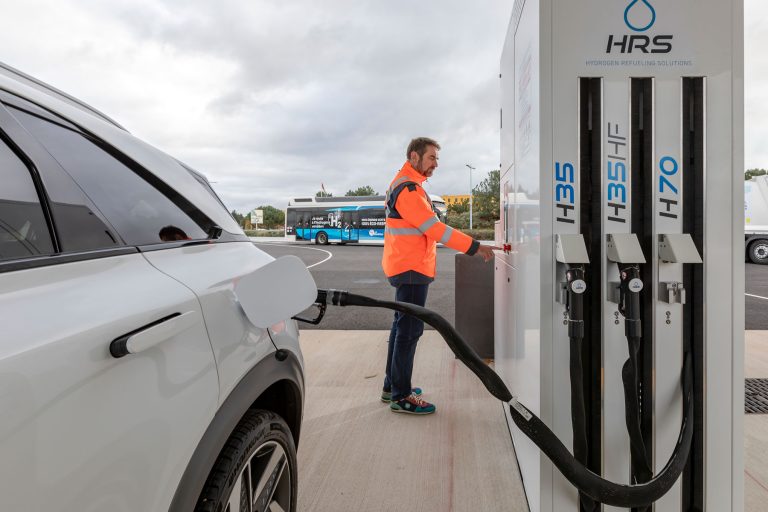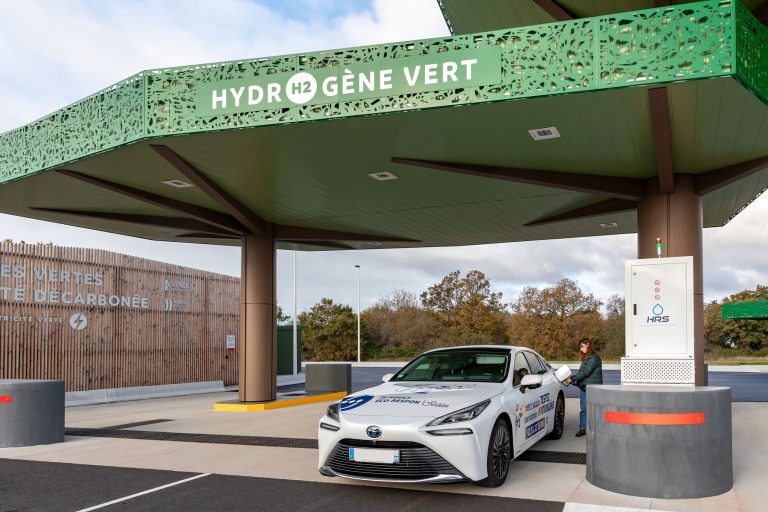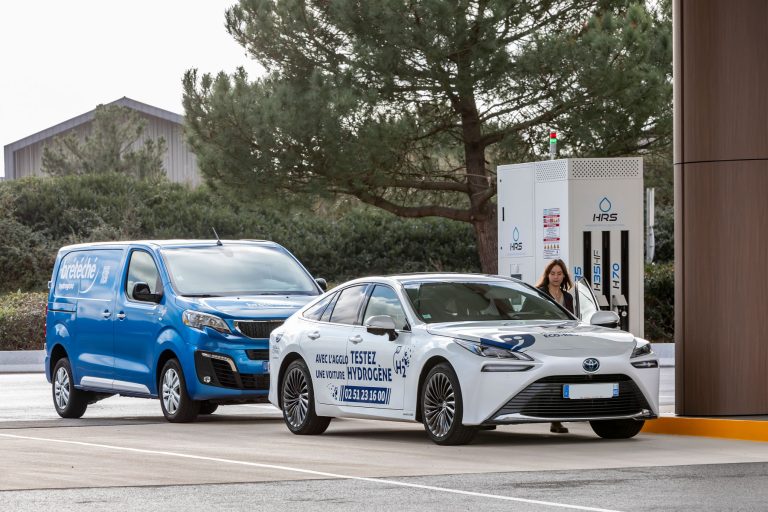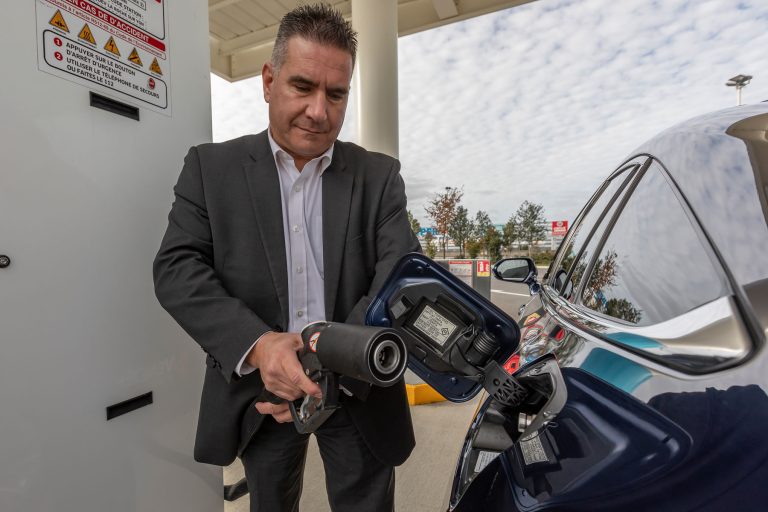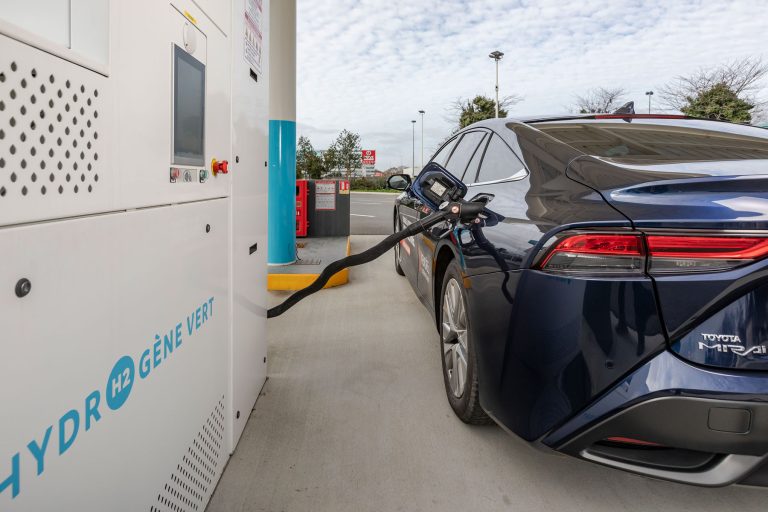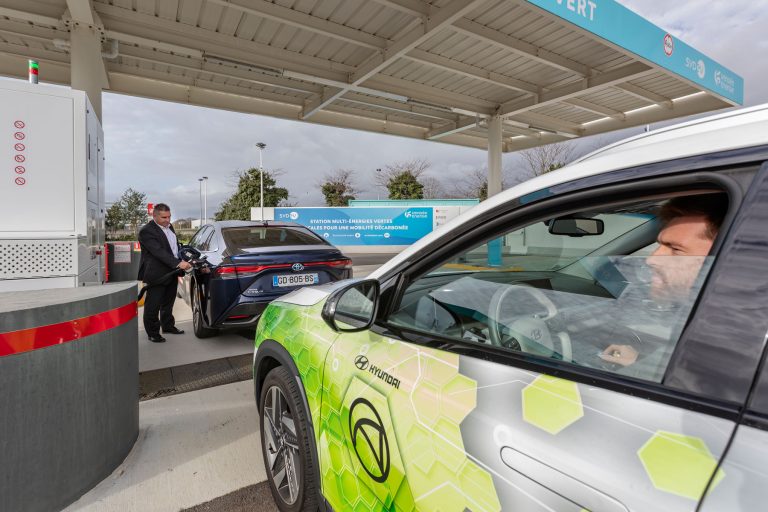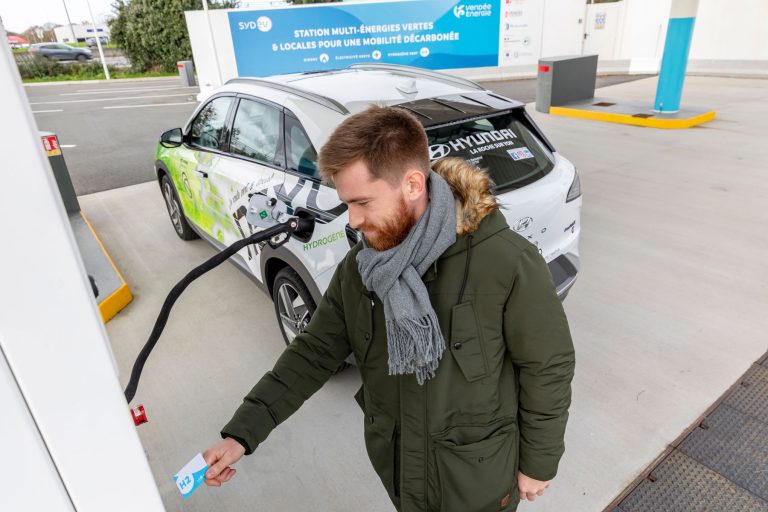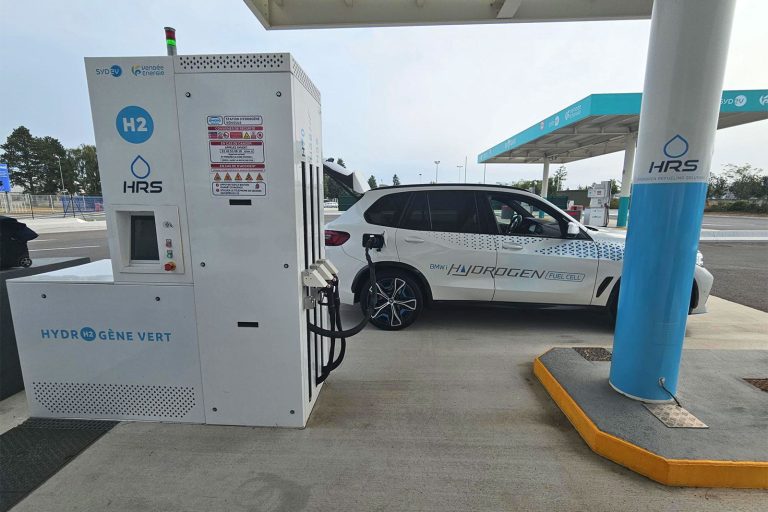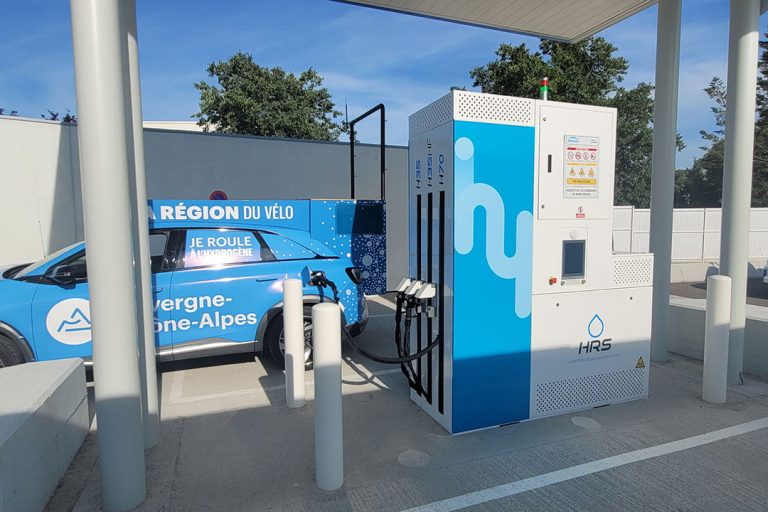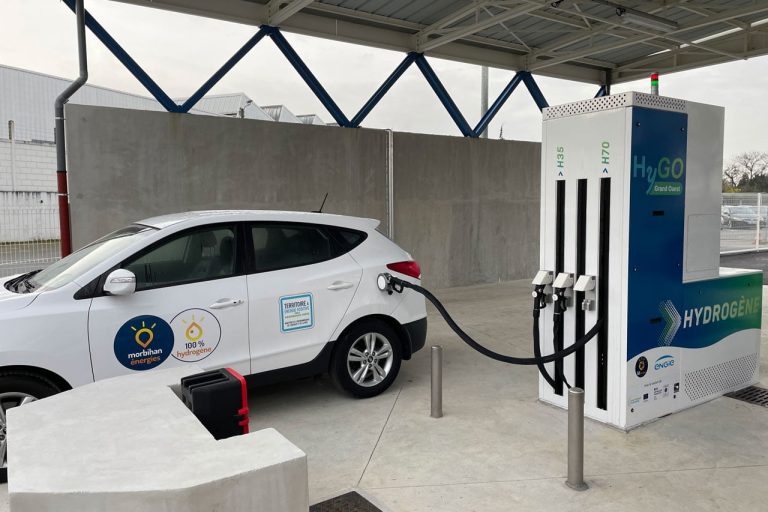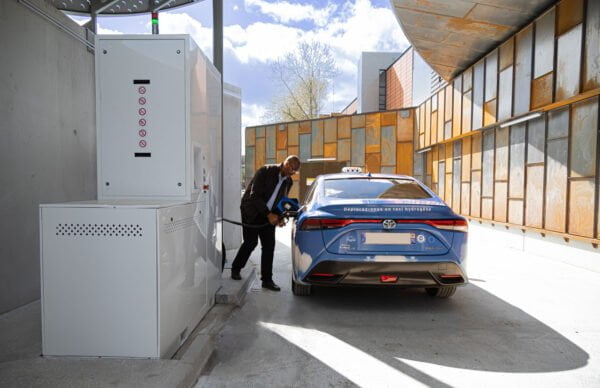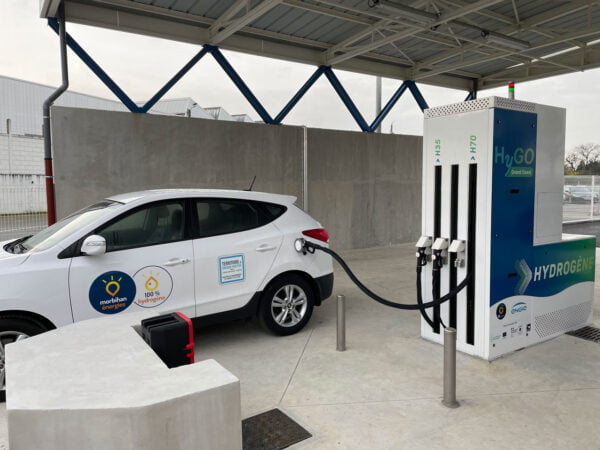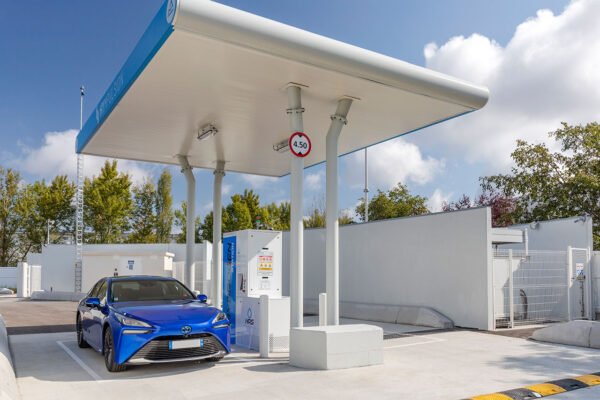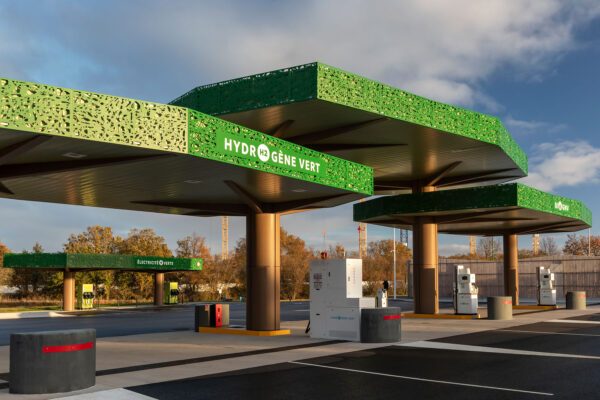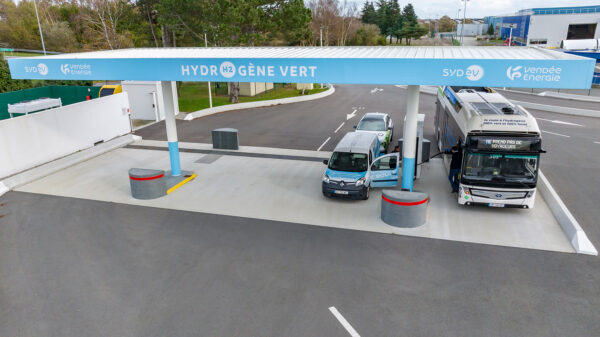Hydrogen, a sustainable solution for intensive mobility
Hydrogen offers real operational efficiency for intensive use. More autonomous and quicker to refuel than battery electric vehicles, fuel cell electric (hydrogen) vehicles are compatible with the requirements of fleets of taxis (hydrogen saloon cars), passenger cars with driver, cargo bikes and service vans for last-mile delivery or professionals working at private residences.
They are also ideal for fleets of urban service vehicles, including waste collection trucks or intercity buses.
Ensure continuity of service for your vehicle fleet
Hydrogen refueling is ideal for closed-loop mobility applications with same-day return to the starting point. A station can be installed near your vehicle fleet's parking area.
HRS stations can be adapted to suit your needs, and can be used for either rapid refueling of individual vehicles or slow refueling of several vehicles simultaneously on site.
Let's create a regional network together
Refueling stations can also offer a variety of uses, serving both private and public clients. On HRS dispensers, the user interface can be used to select the required refueling mode, and can be coupled to a user access control system that manages standard payment.
Alongside this, and following the announcement that certain combustion engine vehicles would be banned from entering several French and European cities, HRS has been working with regional authorities to create a network across a defined region thanks to significant expansion of the dispensing capacity.
Advantages of hydrogen for light vehicles

No need to change old habits!
To refuel, simply connect the pump to your vehicle. The refueling time is the same as that for combustion engine vehicles.

Fast recharging
Hydrogen refueling reduces vehicle standstill times. At around 1 kg/minute, a light vehicle can be refueled in ~ 5 minutes. ;

Long range
Drive several hundred kilometres with full autonomy to ensure your continuity of service. The range of H2 vehicles is identical to that of combustion engine vehicles.

Optimised payload
Switching to hydrogen has no impact on the vehicle's volume or payload.

Reliability and safety
Our stations are manufactured on an industrial scale. Our dispensers comply with fueling protocol SAE J2601/ISO 19880-1 T30 and are confirmed by the CEP (Clean Energy Partnership).

Reduced environmental footprint
Hydrogen vehicles produce electricity by combining H2 and O2, and emit only water vapour. No CO2 is emitted during this process.

Reducing noise pollution
Hydrogen powered vehicles are very quiet for lower noise pollution.
